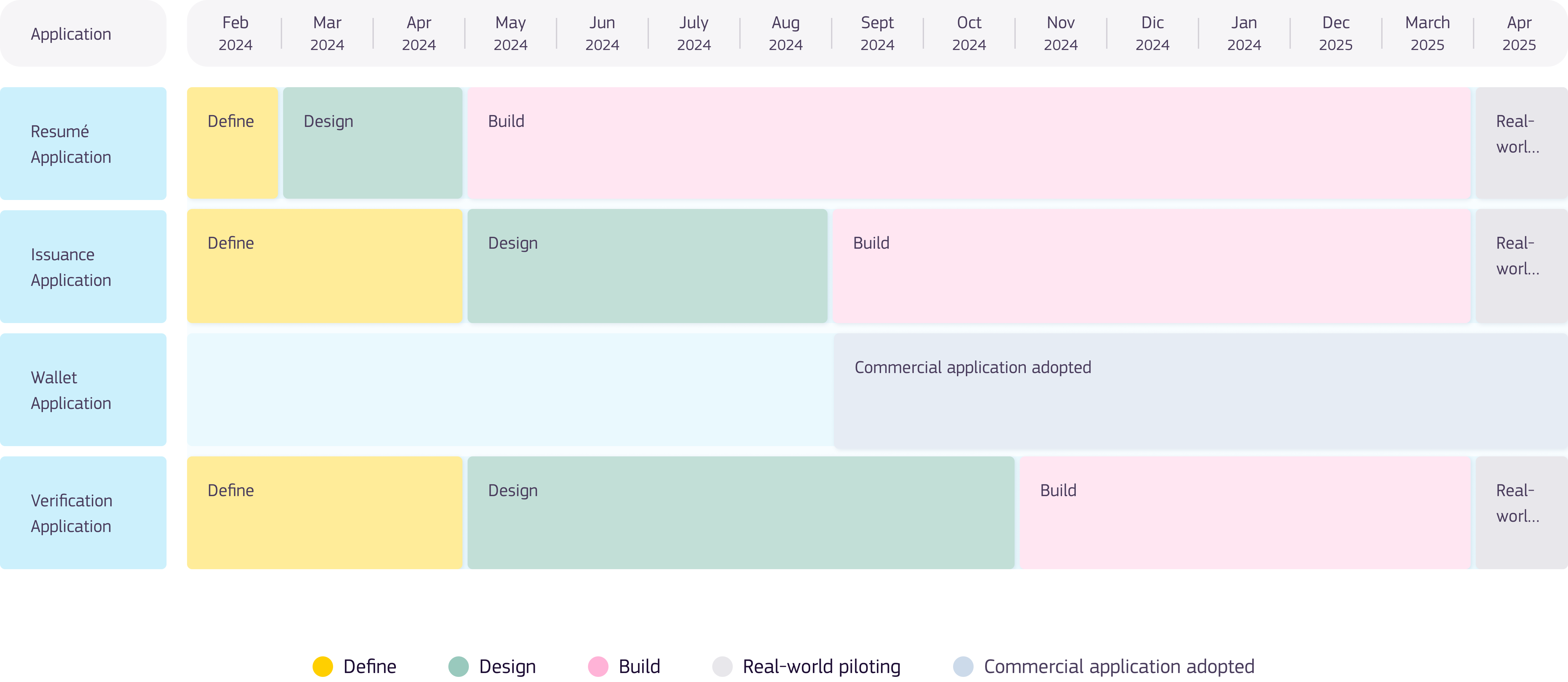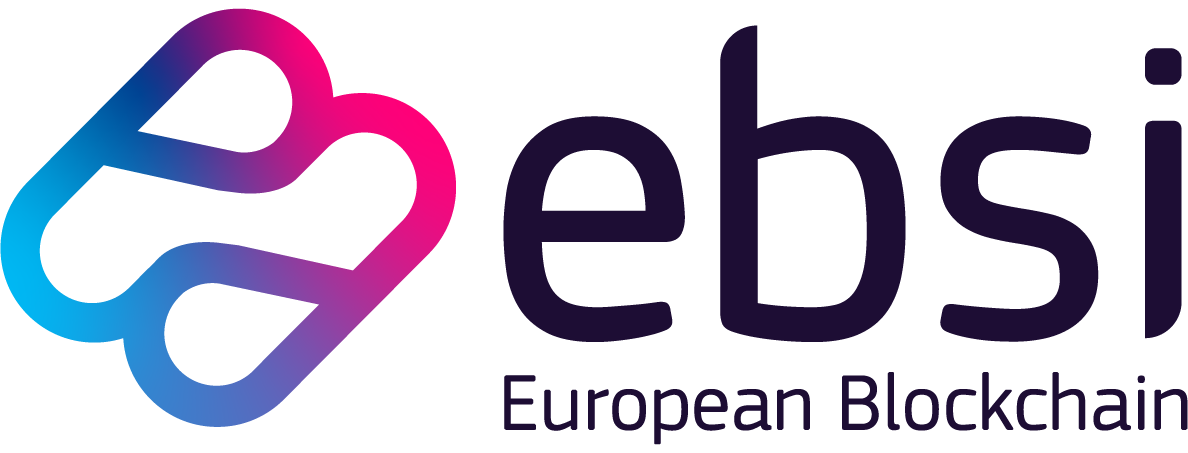EBSI projects
Resumé Credentials Application
Establishing a unified digital system across Europe for the storage and exchange of various educational and professional qualifications.
The vision
Cross-Border showcase life-long learning and professional achievements through verifiable resumé credentials.
The vision of developing a pan-European framework for digital resumé credentials, encompassing various educational and professional qualifications, is centered on creating a common language of skills and competencies in digital credentials. This framework aims to improve the link between validation and certification of prior learning, enabling the interoperability of micro-credentials and the development of a common language of skills and competencies in digital credentials.
The challenge
Applying to universities and companies across Europe is challenging.
Digital credentials, including those issued by universities, professional training, and micro-credentials from online course providers, are seen as a means to better match the skills held by job applicants to open positions, thereby improving workers' and graduates' prospects. However, the lack of a standardised approach to issuing, storing, verifying, and submitting digital credentials in the job application process remains a challenge. Applying to universities and companies across Europe presents key challenges including legal obstacles, differences in higher education access requirements, mismatched data schemas, language barriers, and disparities in university funding systems.
The opportunity
Revolutionise educational and employment application process.
The development of a pan-European framework for digital resumé credentials, utilising employee certificates, digital verifiable credentials, secondary education certificates, and university degrees, aims to standardised the link between validation and certification of prior learning.
By utilizing digital credentials, this use case seeks to simplify cross-border professional and academic pursuits by providing a standardized approach to issuing, storing, verifying, and submitting credentials in the job application process.
Digital credentials, including micro-credentials, are seen as a means to better match the skills held by job applicants to open positions, thereby bridging the gap between higher education and employment. This opportunity aligns with the European Commission's efforts to create a common framework for digital credentials and to transform the identification of verifiable credentials through blockchain technology. To achieve this, three main technologies are implemented:
- Digital Wallet: used by job seekers and companies to receive, store, and send credentials on the move.
- Verifiable Credentials: a more reliable and efficient way to present and validate applicants' skills and qualifications in a machine-readable format.
- Blockchain: for delivering a highly secure, resilient, and decentralised way of verifying credential information.
The project
QTSP & eIDAS compliance in the digital credential ecosystem.
The European Blockchain Service Infrastructure (EBSI) is currently working on formal accreditation and recognition of various educational and professional qualifications, including employee certificates, micro-credentials, and university degrees. This initiative aims to leverage this focus and facilitate the issuance, recognition, and acceptance of digital student university credentials and work experiences.
This initiative aims to comply with Qualified Trust Service Providers (QTSPs) & eIDAS established standards and existing systems such as EMREX, the European Qualifications Framework (EQF), and Europass, facilitating integration and interoperability.
A key area of focus will be aligning Trace4EU's resume credential development with the standards recognised by the Europass CV and European Learning Model v3. The Europass CV, a widely recognized and accepted standard across the EU, will benchmark this project's verifiable credential development process
The infrastructure EBSI provides to effectuate the roles of issuer, holder, and verifier are integral to the digital credential ecosystem. Within this infrastructure, QTSPs play a crucial role as trusted intermediaries, offering services that underpin the trustworthiness of the entire system by providing accredited trust services that comply with the stringent requirements of the eIDAS regulation.
In the digital credentials ecosystem, achieving eIDAS compliance for the European Blockchain Service Infrastructure (EBSI) involves close collaboration between Qualified Trust Service Providers (QTSPs) and the authentic sources of the credentials, such as universities. These services include timestamping, validation, and preservation of digital certificates and signatures, ensuring their long-term validity and integrity.
The scenario
Discover the scenarios.
1. Issue, share, and validate resume credentials.
The project plan
Current implementation stage and plan.

Help us shape the future of education and employment in Europe.
Discover our success stories
Interested in discovering more about our success stories?




